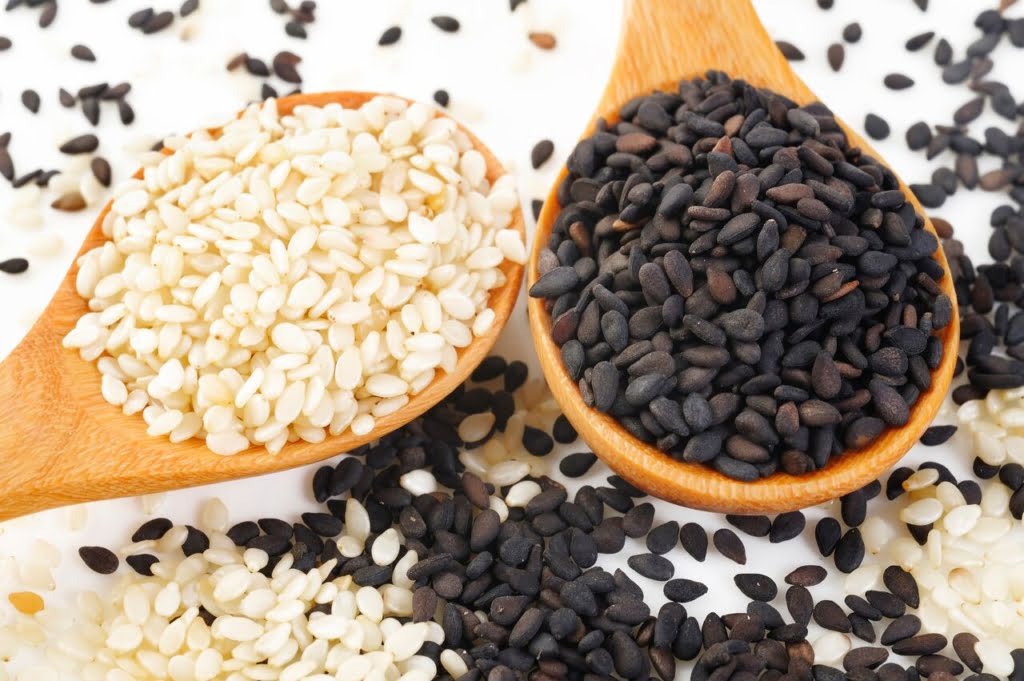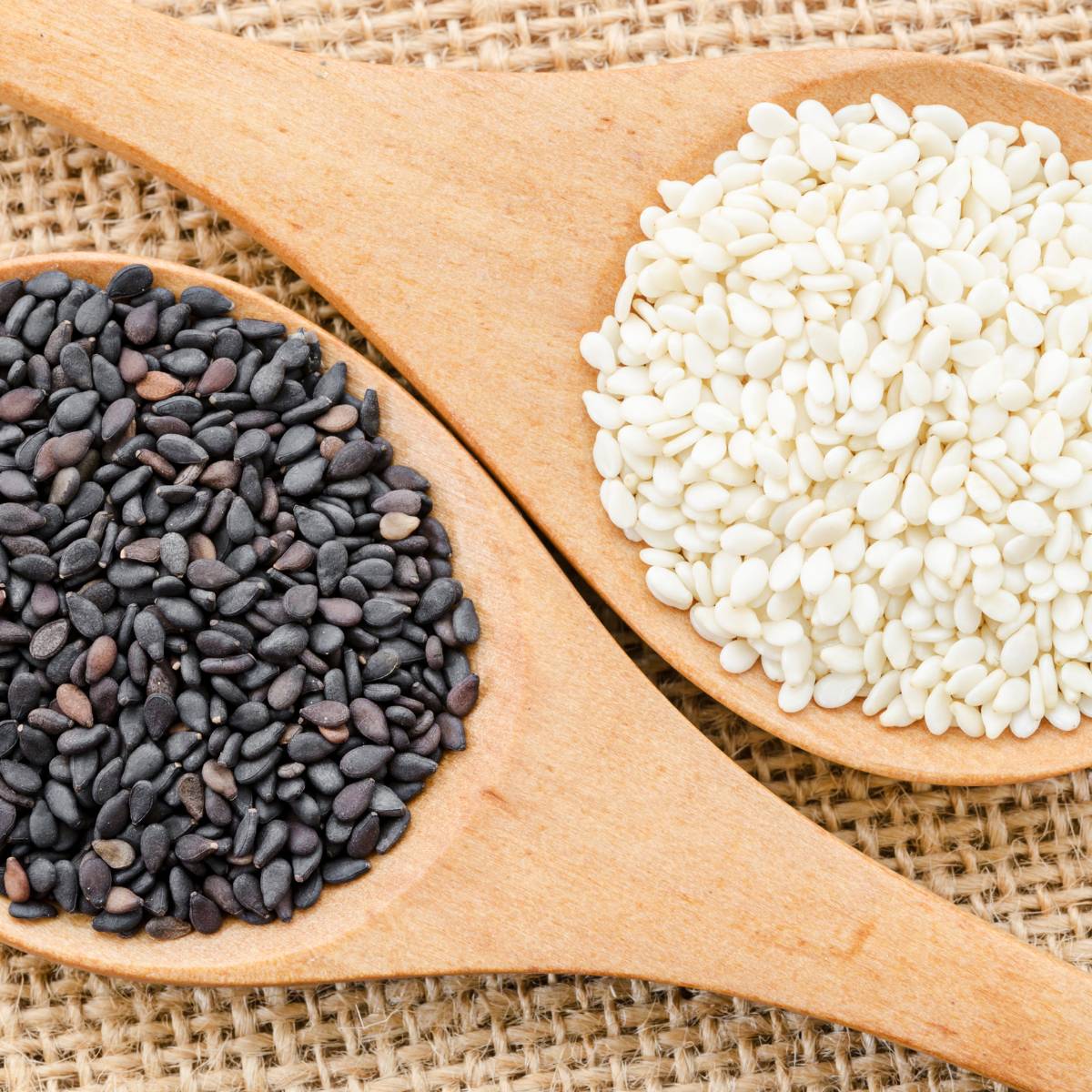Sesame seeds, the tiny yet mighty gems of the culinary world, come in a variety of shades, with white and black being the most prevalent. While they may seem similar at first glance, a closer examination reveals nuanced differences in taste, nutrition, and culinary applications. In this comprehensive exploration, we’ll delve into the characteristics of white and black sesame seeds, shedding light on their unique attributes and how they contribute to diverse cuisines worldwide.
Appearance and Origin:
The most obvious contrast between white and black sesame seeds lies in their coloration. White sesame seeds exhibit a pale ivory or light beige hue, while black sesame seeds boast a deep, charcoal-like black color. Despite this visual disparity, both varieties originate from the Sesamum indicum plant, cultivated for centuries in regions across Asia and the Middle East.
Nutritional Composition:
Nutritionally, both white and black sesame seeds offer an impressive array of benefits, but their profiles vary slightly.
White sesame seeds are renowned for their calcium content, making them a valuable addition to diets focused on bone health. They also contain notable amounts of iron, zinc, and magnesium, essential for overall well-being.
In contrast, black sesame seeds are rich in antioxidants, particularly anthocyanins, which lend them their dark color. These antioxidants play a crucial role in combating oxidative stress and inflammation in the body. Additionally, black sesame seeds contain slightly more fiber than their white counterparts, aiding digestion and promoting a healthy gut.
Flavor Profiles:
The flavor distinction between white and black sesame seeds is subtle yet discernible. White sesame seeds typically possess a mild, nutty taste with hints of sweetness, making them versatile in various culinary applications. Their understated flavor allows them to complement both savory and sweet dishes seamlessly.
Conversely, black sesame seeds offer a more robust and earthy flavor profile. Their intense nuttiness adds depth to dishes, making them particularly suitable for desserts, bread, and certain Asian cuisines. The earthy notes of black sesame seeds contribute a unique and distinctive element to the overall taste experience.
Culinary Uses:
Both white and black sesame seeds are prized ingredients in kitchens around the globe, each lending its unique characteristics to a wide range of dishes.
White sesame seeds are commonly used as a garnish in salads, yogurt, and stir-fries. They are a key component in tahini, a paste essential in Middle Eastern cuisine, and are often sprinkled on bread and pastries for added texture and flavor. In sweet treats, white sesame seeds find their way into cookies, cakes, and energy bars, adding a delightful crunch.
Black sesame seeds are prevalent in Asian desserts, particularly in China and Japan, where they are used in dishes such as black sesame soup, mochi, and sesame balls. Their bold flavor and striking appearance make them ideal for enhancing the visual appeal and taste of sweet treats. Additionally, black sesame seeds are utilized in savory dishes, such as sprinkling them over sushi rolls or incorporating them into spice blends for a unique twist.

Health Benefits:
Both white and black sesame seeds offer a myriad of health benefits, making them valuable additions to a balanced diet.
White sesame seeds’ high calcium content supports bone health, making them particularly beneficial for individuals at risk of osteoporosis or other bone-related conditions. Additionally, the iron and zinc in white sesame seeds contribute to maintaining healthy blood and immune systems.
Black sesame seeds, with their elevated antioxidant levels, provide increased protection against oxidative stress and inflammation. The anthocyanins present in black sesame seeds have been linked to improved heart health and cognitive function. Furthermore, the fiber content aids digestion and helps regulate blood sugar levels.
Conclusion:
In summary, while white and black sesame seeds may share a common origin, their differences in appearance, flavor, and nutritional composition make each variety unique. Whether you prefer the mild versatility of white sesame seeds or the bold, earthy notes of black sesame seeds, incorporating these tiny wonders into your diet can elevate both the taste and nutritional value of your meals. So, the next time you reach for sesame seeds in your pantry, take a moment to appreciate the subtle yet impactful distinctions between the white and black varieties, unlocking a world of culinary possibilities.
Ajigofarms is a reliable global agricultural purchase sourcing with profound expertise in the manufacturing, and exportation of food crops. We are tested, and trusted suppliers of all kinds of cash crops and food crops. Our constant supply chain solution makes exporting easy, quick, and safe, we are identified with timeliness and meeting up with deadlines. Regardless of the region you are located in worldwide, you can reliably order your Agric products and be rest assured of successful delivery.




